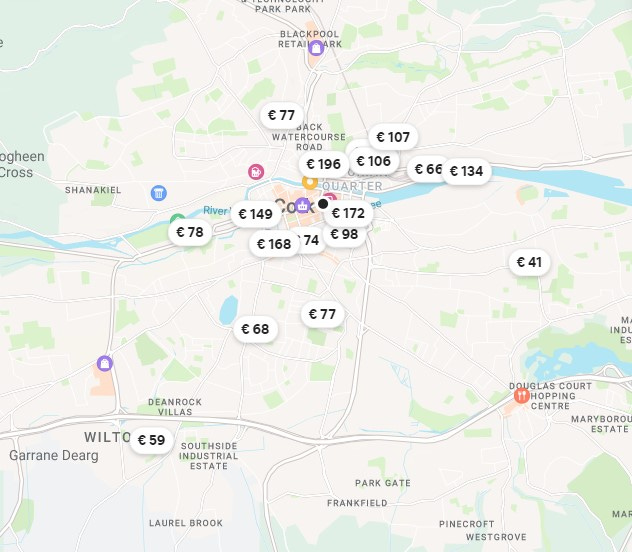Two UCC law students launch campaign to force short-term property owners to play by the rules
Brian O’Kane and Peadar Ó Rathaille are planning to file hundreds of planning complaints in order to force Cork City Council to investigate property owners who are violating short-term planning laws.
Two UCC law students have embarked on a campaign of sending planning enforcement complaints to Cork City Council to force the council’s hand to investigate property owners who are not complying with short-term planning legislation.
Brian O’Kane and Peadar Ó Rathaille, two final year law students at UCC, have sent Cork City Council 80 complaints since March 31. Many more are in the pipeline.
“Every short-term let in Ireland is required to have planning permission if they are let out for more than 90 days per year,” Peadar told Tripe +Drisheen.
In accordance with new legislation introduced in July 2019, property owners in so-called “rent pressure zones” (RPZs) who short-term let their properties for more than 90 days per year must apply for change-of-use planning permission as they are no longer operating a residential property but a commercial one.
Peadar, originally from Ennis, said that from their investigation the vast majority of short-term property rentals in Cork do not have planning permission.
So far, the law students have sent off 80 complaints to Cork City Council’s planning department, in Irish and English.
“The whole objective behind this is to regulate the market,” Peadar said.
“If there are 371 Airbnb listings in Cork city and only 10 of them have planning permission, the chances are that landlord ‘Peter’ is probably not going to want to pay the €5,000 fine plus the €10,000-€15,000 to get planning permission.”
“What they’re most likely to do is either sell the property or rent it out,” Peadar said.
“If we could get over 350 properties suddenly reintroduced to the market in Cork city through renting and selling, prices for accommodation would plummet," he added.
A search of property website Daft.ie showed 33 properties available for rent in Cork city, while Airbnb had more than 150 short-term rental listings.
Peadar thinks if they could get half of the 25,000 properties listed nationally on Airbnb returned to the sale and rental market, they could probably “manage to drop the price of rent and purchasing of houses significantly.”
How they’re doing it
Peadar explained that the campaign is pretty straightforward: first of all they look on Airbnb for rental properties, and they cross check this with another website called Inside AirBnb.
For properties that are not in compliance with planning laws, the pair complete a two-page complaint form from the City Council’s website giving details about the property, as well as their own details.
Peader, a Gaeilgeoir, is completing his forms in Irish in line with his practice of conducting all of his business with the State exclusively in Irish. Meanwhile Brian submits the forms in English.
Peadar said from opening a file to sending it to the correct department only takes about seven minutes. The pair embarked on the campaign at the end of March, so they should start hearing back from the City Council soon.
The City Council are required by law to reply to Peadar and Barry’s complaints.
Peadar said he would not also accept that local authorities don’t have the resources to enforce the law.
“The law isn’t there for fun, it’s there for a very good reason.”
For more information about filing a complaint or information about the regulations for short-term rentals visit Cork City Council or County Councty Council’s websites.






